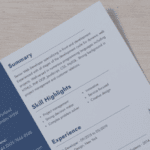- Profile Evaluation
- Countries
Beginner's Doubts
Study in USA
- Exams
- Finances
- Documents
Beginner's Doubts
Statement of Purpose (SOP)
Letter of Recommendation (LOR)
Other Documents
- Case Studies
Case Studies
- How Udit got an admit from University of Rochester With Rs. 28 Lakhs Scholarship
- 90th ranked to the 10th Ranked university in USA for MSBA - with $18,000 Dean scholarship - Anmol created history with Ace My Prep
- A distance learning BBA and just 1 year experience, no GMAT, was enough to get Vatsal into his dream school
- Journey of Jivika - 3 GPA fresher background, along with the Profile enhancement of Ace My Prep, got into the best Business and Brand Analytics universities of USA
- Journey of Anuj - From not getting any top 30 universities in his free shortlists to getting a direct admission to the 9th ranked university with a scholarship
- Journey of Sanchit - 48% in Bcom and the best MBA universities of the world. Is it Possible?
- Journey of Sahil - Mumbai University to Imperial College London
- Journey of Gowtham - From Loyola College, Chennai to London Business School
- Journey of Harsh - From a Bachelor's dropout to a 100,000$ scholarship in a Top 30 USA university
- Journey of Hitansu - Boston University MBA With $45,000 Scholarship
- acemyprep.com
- Study in UK – Complete Overview
- UK – Complete Study Abroad Admission Process
UK - Complete Study Abroad Admission Process

Pragya Sharma ✅
Co-Founder @ Ace My Prep & Study Abroad Expert
- 1,25,956 Views

Hundreds of the world’s best colleges are located in the United Kingdom, in both quaint old towns and bustling cities. Before beginning with your admission process, you must realise that UCAS (Universities and Colleges Admissions Service) is your ticket to a university in the United Kingdom.
In comparison to the US system, which allows you to request university-specific applications, you will only need to write one personal declaration, apply to a maximum of five universities, and do so via a single web portal in the UK.
The detailed steps are laid down below
1. Ensure you meet all requirements
To begin, get started as soon as possible – there is nothing you can do if deadlines are missed, and if you are dead set on studying in the UK, you will have to wait for another year. It’s also important that you make sure you follow all of the prerequisites for success.
You will need:
- An up-to-date passport
- An English language proficiency qualification
- Proof of how you will be funding your studies
- A Tuberculosis test (for students from certain countries)
To study in the UK, you must pass the IELTS or an equivalent exam to demonstrate that you have sufficient English language skills to complete your degree.
If you want to study in London, you must show that you have at least £1,020 (US$1,430) a month in living costs and the financial resources to pay for your fees. Outside of London, this fell to £820 a month (US$1,150).
Many countries need Tuberculosis (TB) clearance before joining the UK, so check to see if your home country is on the list and get checked if it is.
2. Find a course and select your universities
In the United Kingdom, you choose your course before going to university, and your enthusiasm for that field of research should be evident in your submission.
If you are unsure, you can conduct a search on our website to discover a course that concerns you. If you’ve decided on one, look it up on UCAS and write down the special code.
3. Write your personal statement
Your personal statement sets you apart from other students and is likely to have a significant impact on your results while competing against students of similar grades and backgrounds. You have 47 lines (not words) to sell yourself and your enthusiasm for the topic you’ve selected.
Describe your areas of interest, what you will bring to the university, why you choose this particular course, and what you hope to achieve.
4. Apply through UCAS (Only for UG Applicants)
The UCAS website is user-friendly and can help you with the application process. Fill out your contact details, as well as the UCAS codes for your course and universities that you gathered earlier and your personal statement. Unlike in the United States, where each application is tailored to a specific university, similar applications will be sent to all of the universities in the country.As previously said, this is not the case in the United States, where each submission is personalised to a single university; thus, the same application will be submitted to all of the universities you select.
UCAS now charges £13 (US$18) for a single university application for a single course, or £24 (US$33) for multiple universities or courses. All you have to do now is sit back and wait after you’ve paid the bill…
If you are approved, the university that accepted you will give you a CAS form (Confirmation of Acceptance of Studies), which is a virtual document with a unique reference number. You’ll need this to apply for a student visa, so keep it safe (and don’t lose it). It will also
5. Pay for Immigration Health Surcharge
You must pay a £150 (US$210) Immigration Health Surcharge (IHS) premium to get free healthcare for the remainder of your studies. This fee covers you for one year. This fee can be paid online.
You’ll use your payment receipt to apply for your visa, so keep it secure.
6. Apply for your visa
If you are studying for a full degree in the UK, you will need a Tier 4 (General) Student Visa, and if you are only studying for six months or less, you will need a Student Visitor Visa, which you can apply for online. As part of your application for a Biometric Residence Permit, you’ll need to get your fingerprints and picture taken at a visa application centre.
7. Start planning your journey
You should now start making exciting arrangements, including your mode of transportation, to get you safely to your new home in the United Kingdom. If you haven’t already heard from the university about housing, contact them and make plans for your arrival.













